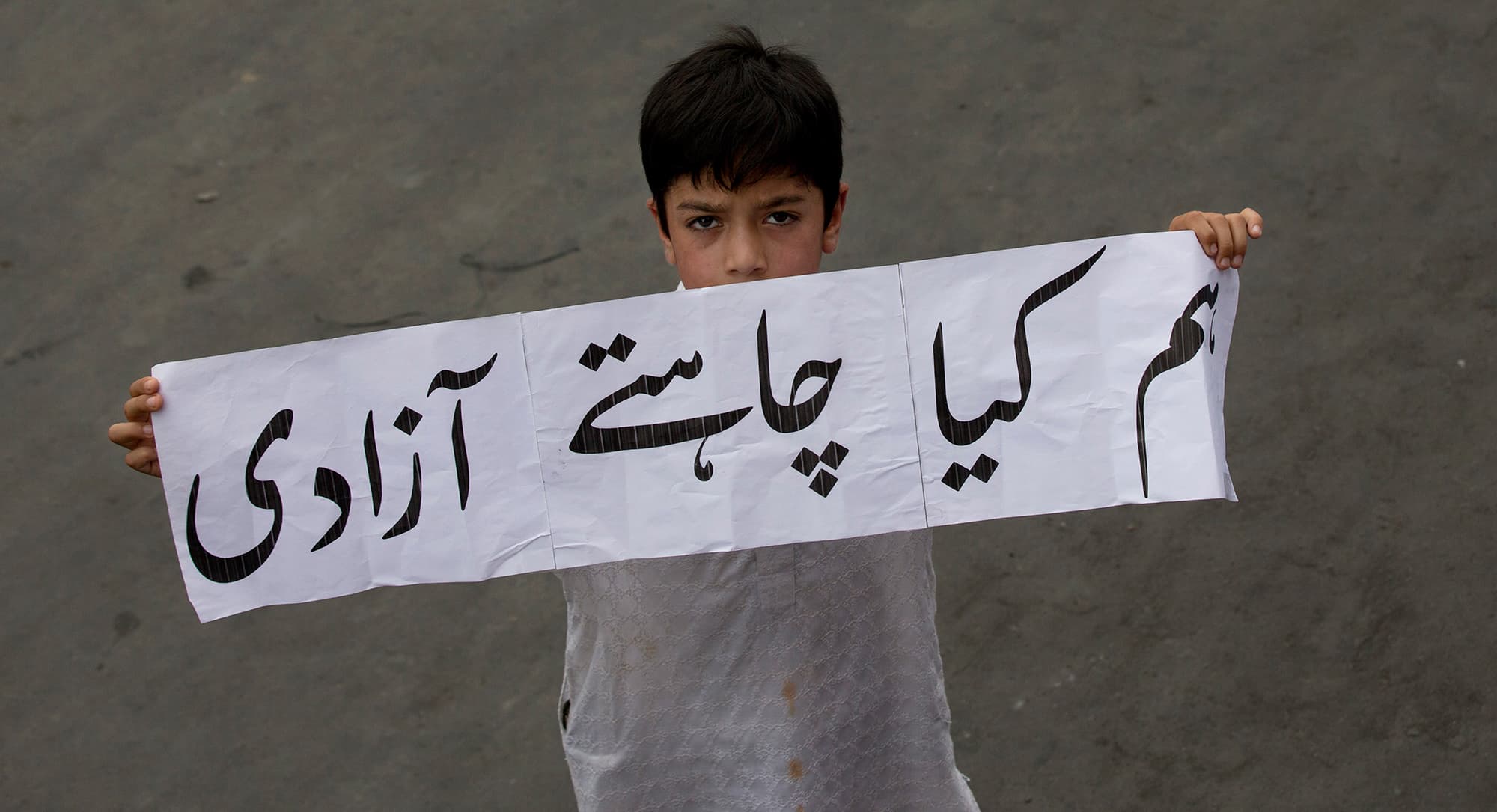Pakistan regards Kashmir as its jugular vein while India claims it as its “atoot aung”–means vital organ. Both the states are trying to dominate each other in this regard while the freedom of thousands of Kashmiris is at stake in this game of geopolitics.
Kashmir is a beautiful valley, shares its borders with Pakistan, India, and China. It is divided into three parts; one is Azad Jammu and Kashmir; the other is Ladakh and Kashmir occupied by India; the third part is Aksai chin, adjacent to Tibet, and administered by China. Many wars have been fought between India and Pakistan over the issue of Kashmir, particularly the wars of 1948 &1965. While, with China, there lies hostility over the issue of Aksai chin to this date.
Background:
During independence in 1947, all the princely states were authorized to cede to any of Pakistan or India, keeping in view the consent of the majority of the population. The then Raja of Kashmir, Hari Singh, wanted to remain neutral, but the undue interference from India created an uproar among the masses of Kashmir, due to which the Muslims showed readiness to couple their allegiance with Pakistan. Moreover, the Maharaja launched an offensive against the Muslims to muzzle the voices of dissent. To help their Muslim brethren, the scouts of Gilgit-Baltistan and the tribesmen of Frontier region charged towards the already volatile region. Soon they took hold of the major areas but the debilitated Maharaja fled to India and signed the instrument of accession inadvertently on 26 October 1947. In this way, the Maharaja gave way to Indian forces to occupy and seize Kashmir.
The matter was brought before the UNSC which passed Resolution 47, which asked for a plebiscite in the territory of Kashmir. 72 years have lapsed but no such plebiscite could be arranged in the disputed territory. Kashmiris are facing atrocities at the hands of the so-called biggest democracy of the world. Many a time this issue has been raised in UN but all in vain which depicts that the UN only serves the interests of Big 5 i.e. USA, UK, USSR, China, and France.
On 5th August 1965 Pakistan launched a highly covert operation codenamed “operation Gibraltar” to initiate an insurgency in Kashmir against India. Surreptitiousness of this mission can be estimated from the fact that even Pakistani air force was unaware of such mission and the Intel of the mission was leaked by an American agency to India. The seventeen-day war caused thousands of casualties on both sides and witnessed the largest engagement of armored vehicles and the largest tank battle since World War II. Hostilities between the two countries ended after a United Nations-mandated ceasefire was declared following diplomatic intervention by the Soviet Union and the United States, and the subsequent issuance of the Tashkent Declaration.
Subsequently, under the Simla Agreement of 1972, both countries agreed to respect the Line of Control maintained after the ceasefire in the 1971 Indo-Pak war and to treat the Kashmir issue as a bilateral concern with an option of third-party mediation. Surprisingly, India has always insisted that Kashmir is a bilateral issue under the Simla Agreement, which is technically a falsehood.

Lay of the land:
Recently on 5th August 2019, India took an absurd and villainous step under the rogue premiership of Modi by changing the constitutional position of Kashmir and made it as the integrated part of India. Choosing 5th August for changing the position of Kashmir depicts that India retaliated for the operation of 5th August 1965 by Pakistan.
In addition, the Modi-led xenophobic regime, under the guise of the corona crisis, is leading an abominable strategy to suppress the Kashmiris right to self-determination. On the other hand, Kashmiri youth is agitating against a hundred times bigger enemy with revolutionary fervor. The recent martyrdom embraced by Riaz Naikoo and Junaid Sehrai, and the vehement response by the Kashmiri youth against the occupied forces clearly depicts that India is an aggressor. Besides the violent tactics, India employs other tactics to obscure the dismal situation in Kashmir. Among these include the dismantling of internet service, choking the free media, aberrant use of lockdown, and perpetuating a false narrative that Kashmiri people belong to them.
But why is the world silent? Why is Pakistan taking a mellow stance? Why does it seem that the pleas of Kashmiris are falling on deaf ears? It is because the language and morality of states in international relations are different from that of individual morality.
First, despite the United States’ recent offer of mediation, it is not involving itself in the issue because it has a strong trade relationship with India and it would not endanger its economic prospects.
Second, China, despite its ties to Pakistan, conducts a bilateral trade of a tremendous annual scale with India. Although it has shown concern over the Ladakh region, it cannot act as an exclusive party between India and Pakistan.
Third, the United Nations has been rendered toothless and its depth and scope of authority have wavered through the years. It has been unable to help the Palestinians and the Rohingya Muslims. Powerful states have scrapped the demands of the UN on various occasions.
Fourth, Pakistan is depressingly weak on its diplomatic front.
These are harrowing times for the Kashmir cause and Pakistan cannot do anything but urge other countries to intervene on its behalf. It is imperative for Pakistan to complete its diplomatic homework and improve its politics in the international arena. Because a slow or weak response can cost Pakistan dearly in the form of lost allies and weakened credibility.
- Pakistan’s jugular vein - 22 May 2020

